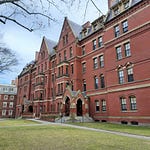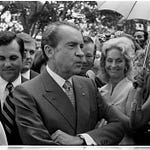
Last week, I found myself in the middle of a discussion centered on Presidential obligation and authority. The subject was the Supreme Court’s decision to overturn the semiautomatic firearms bump stock ban on the grounds that the Trump administration had overstepped its authority. One passionate advocate emphasized that the executive had a responsibility to protect the greater good, while others said that the ban required congressional action.
Does the Presidential Oath of Office imply a duty for US Presidents to act in the interest of the greater good?
On July 26, 1948, President Harry S. Truman signed Executive Order 9981, desegregating the US military. More than one million black Americans proudly fought in every theater of operations in World War II, only to return home to face segregation across America. Truman, who himself had grown up with white supremacist views in Missouri, was profoundly disturbed by the treatment of these veterans. He expressed his disgust, stating, “My stomach turned over when I learned that Negro soldiers, just back from overseas, were being dumped out of army trucks in Mississippi and beaten.”
EO 9981 helped set the stage for later broad desegregation during the Civil Rights Movement. It was a major policy change by the executive branch. It used the President's authority as Commander-in-Chief to enforce principles of equality and non-discrimination within the armed forces.
Two sections of the executive order are compelling for our discussion. The first reads…
NOW, THEREFORE, by virtue of the authority vested in me as President of the United States, by the Constitution and the statutes of the United States, and as Commander in Chief of the armed services, it is hereby ordered as follows…
The Constitution endows the Presidency with both authority and duty. The President holds the authority to lead and execute the federal government's directives and the duty to uphold and enforce the laws and principles delineated in the Constitution.
By referencing the Constitution in the executive order, President Truman made a clear statement that his actions were within the scope of his powers. This responsibility stems from the President's oath of office, which commits to 'preserve, protect, and defend the Constitution of the United States.' This oath is a testament to the President's commitment to the law and the principles it upholds.
The second notable section states…
It is hereby declared to be the policy of the President that there shall be equality of treatment and opportunity for all persons in the armed services without regard to race, color, religion or national origin.
The executive order echoes the Constitution. The Constitution mandates that all branches of government operate consistently with principles of equality of treatment and opportunity.
These broad principles are found in the Preamble as a mandate to “establish Justice, insure domestic Tranquility, provide for the common defense, promote the general Welfare, and secure the Blessings of Liberty to ourselves and our Posterity.” They are reinforced by the Fifth Amendment’s guarantee that “No person shall be…deprived of life, liberty, or property, without due process of law.”
Furthermore, Article II, Section 3 identifies the President “shall take Care that the Laws be faithfully executed,” mandating enforcement of laws in a manner consistent with the Constitution's principles of equality and justice.
Truman signed Executive Order 9981 for the greater good, but it clearly had a constitutional authority and duty component. This is just one example of how a President can use their authority to act for the greater good.
However, another critical aspect of the order was the applicability of the location. Truman ordered equal treatment of all inside the US military. As Commander in Chief, he had the authority to direct desegregation in the services. Outside the executive branch, he didn’t have the ability to order desegregation for all. That feat took overcoming heated resistance and was only achieved 16 years later when Congress finally passed the Civil Rights Act in 1964.
Let’s apply this conceptual philosophy to our question. Does the Presidential Oath of Office imply a duty for US Presidents to act in the interest of the greater good?
Yes and no. The Presidential Oath of Office explicitly binds the President to uphold and defend the Constitution and to execute their duties faithfully. This oath grants them authority to govern where this authority applies, primarily within the executive branch. However, it's important to note that it doesn't extend the President's authority to direct actions outside the executive branch. This is a critical aspect of the Presidential role.
How about an example?
Consider taxpayer money: Our taxes fund various government activities, including awarding contracts and grants to companies. Suppose the government awards a contract to Company X, which then hires a worker at poverty wages. Due to these low wages, the worker qualifies for government assistance programs to meet basic needs like food on the table and heat in the house.
The American people end up paying twice for this worker: once through the payment to Company X under the government contract and again through social welfare programs because Company X pays the worker insufficient earnings to meet these basic needs.
This dual payment represents an irresponsible and wasteful use of funds by the executive. Careless and wasteful use of taxpayer dollars violates Constitutional principles. The Constitution compels the President to faithfully execute the law, which includes managing resources effectively and preventing wasteful spending.
But the President can’t direct companies to pay wages that would prevent workers from qualifying for social programs, and companies won’t do it out of the goodness of their hearts.
The President could sign an executive order directing executive federal agencies to award contracts or grants only to companies that pay all employees wages above the social program level. This order would ensure that government funds are used responsibly and prudently and reduce government spending on social programs for low-income workers.
This approach ensures workers can earn enough to support themselves without needing supplemental government assistance, representing an appropriate use of government funds. It would reduce government spending on social programs for low-income workers. Higher wages could increase consumer spending, boost the economy, and promote sustainable economic growth.
The President should have the authority to sign this order. They aren’t compelling companies to pay higher wages. A company can choose to withdraw from competing for government funding. The executive is directing their branch of government to allocate the funds issued by Congress responsibly and prudently.
Counterarguments that some jobs are entry-level positions that don’t justify wages sufficient for Americans to have food on the table and heat in the house are empty. That is an argument to support social programs.
Americans should not subsidize companies that benefit from taxpayer funding and pay low wages.
The ideal solution is for Congress to pass laws to help Americans succeed as individuals and eliminate the need for broad social programs.
Does the Presidential Oath of Office imply a duty for US Presidents to act in the interest of the greater good?
Yes, the Oath implies these duties but gives the President limited power to execute them.
The President can still innovate and act inside their authority for the greater good.
May God bless the United States of America.














Share this post